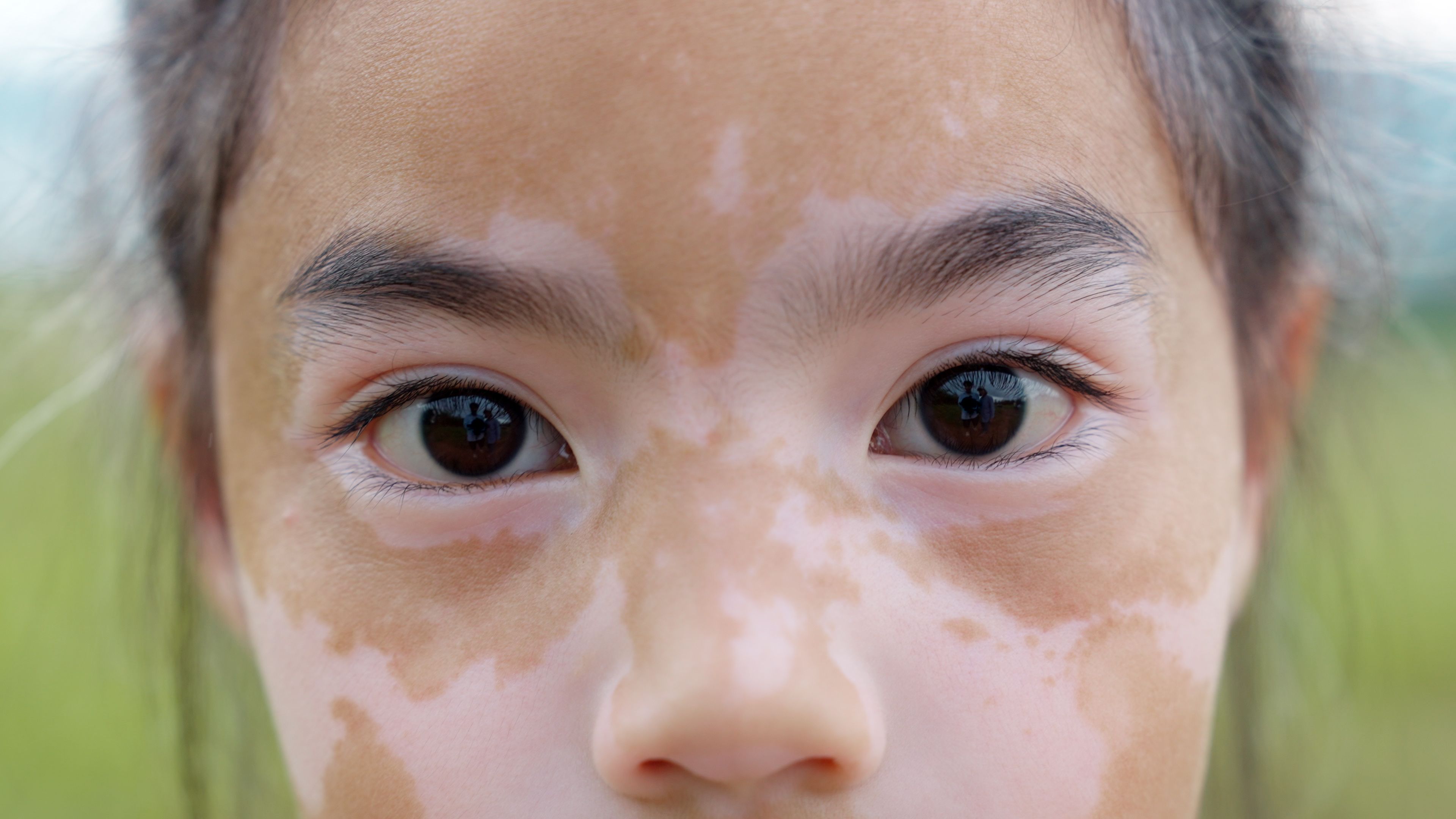- Acne
- Actinic Keratosis
- Aesthetics
- Alopecia
- Atopic Dermatitis
- Buy-and-Bill
- COVID-19
- Case-Based Roundtable
- Chronic Hand Eczema
- Chronic Spontaneous Urticaria
- Drug Watch
- Eczema
- General Dermatology
- Hidradenitis Suppurativa
- Melasma
- NP and PA
- Pediatric Dermatology
- Pigmentary Disorders
- Practice Management
- Precision Medicine and Biologics
- Prurigo Nodularis
- Psoriasis
- Psoriatic Arthritis
- Rare Disease
- Rosacea
- Skin Cancer
- Vitiligo
- Wound Care
Article
Preventing Laser, Light Therapy-Induced Lesions in Vitiligo
Author(s):
Researchers said laser and intense pulse light-induced vitiligo lacks consensus in prevention and safety measures.
Dermatologists may be hesitant to recommend or perform laser and light therapy treatments in patients with vitiligo due to the risk of creating new, additional lesions.
ChayTee/AdobeStock

In a recent e-Delphi study,1 researchers described this reluctance, attributing it to the absence of treatment guidelines and minimal amounts of literature on the subject. In completing the study, researchers soughtto achieve consensus in safety guidelines for the use of laser and light therapies in patients with vitiligo and preventing therapy-induced vitiligo lesions, also known as Koebner phenomenon.
The study included participation from 18 dermatologists across the globe, all of whom specialized in vitiligo and/or laser therapy. All participants were asked to complete 2 questionnaires and attend a virtual online consensus meeting.
The initial questionnaire was informed by existing research, including a prior literature review and a cross-sectional survey. Additionally, a panelist of researchers from Amsterdam University Centers aided in the question-formulating process. Both questionnaires utilized a Likert scale.
Researchers defined consensus as equal to or greater than 70% agreement, or complete agreement.
After completing the initial questionnaire, the panelists suggested revisions and additional questions to be included in the secondary questionnaire. In the second questionnaire, participants received feedback from the initial results, giving them the opportunity to alter or change their responses.
Then, in order to reach a final consensus, researchers invited participants to a Zoom meeting, where they further discussed included or undecided items and voted on close-consensus points.
In total, 32 items achieved consensus.
“We agreed that every laser/IPL treatment, even in ideal circumstances, poses a risk of inducing vitiligo in predisposed patients. This risk should be discussed with the patient prior to the treatment,” study authors wrote. “Participants agreed that post treatment complications like ulcers/erosions, blisters, and crusts increase the risk. This is in line with previous research stating that epidermal damage increases the risk of developing vitiligo lesions at the treatment site.”
Additional consensus items included:
- Consider the aggressiveness of treatment, regarding the risk of causing epidermal damage and patient risk factors
- Establish appropriate laser settings
- Laser/IPL induced vitiligo should be treated similarly to normal vitiligo
- Preventive treatment should be started when complications occur
- Prioritize shared decision-making
- Use a mixed approach
- Use test spots in predisposed patients prior to treatment
- Use Wood’s lamp examination prior to starting laser/IPL treatment
- Withhold laser/IPL treatment from patients with vitiligo, unless there is stability for more than 1 year
“These recommendations are expert based and provided by dermatologists specialized in the field of vitiligo,” study authors wrote. “They can be used as a guideline for clinicians to improve clinical care and decision making when treating vitiligo patients with a laser/IPL or when laser/IPL-induced vitiligo occurs.”
Reference
- Post NF, Rodrigues MA, Liong-A-Jin C, Lommerts A, Abdallah M, Bae JM, Bekkenk MW, Silva de Castro CC, Eleftheriadou V, Esmat S, Ezzedine K, van Geel N, Hamzavi I, Leone G, Pandya AG, Passeron T, Raboobee N, Seneschal J, Th’ng S, Wolkerstorfer A. Consensus on the safety and risks of laser and intense pulse light (IPL) treatments in vitiligo patients, an eDelphi study. Journ of the Amer Acad of Dermatol (2023), doi: https://doi.org/10.1016/ j.jaad.2023.03.015.
Newsletter
Like what you’re reading? Subscribe to Dermatology Times for weekly updates on therapies, innovations, and real-world practice tips.











